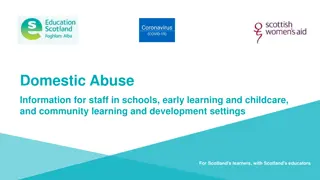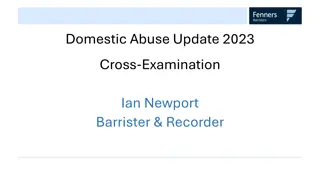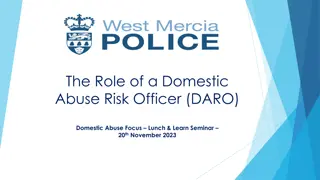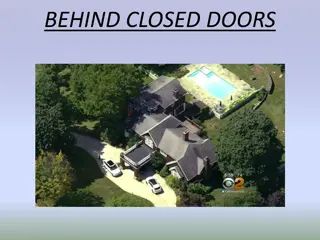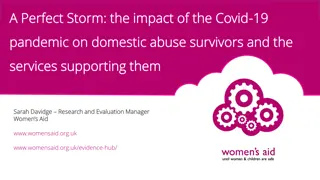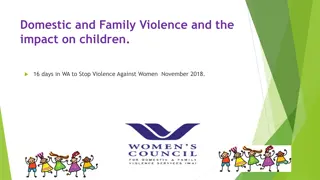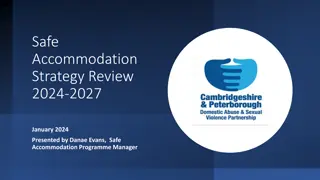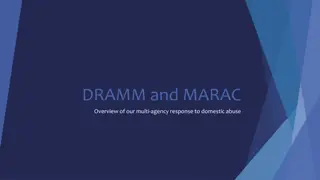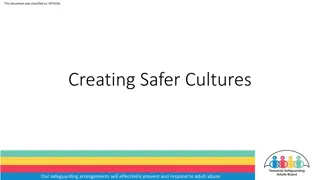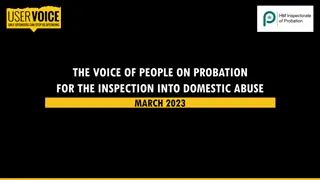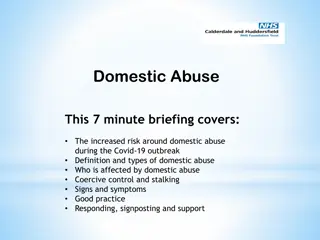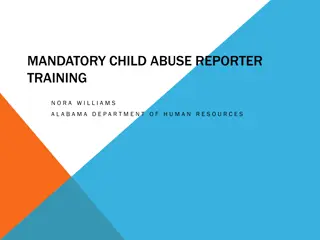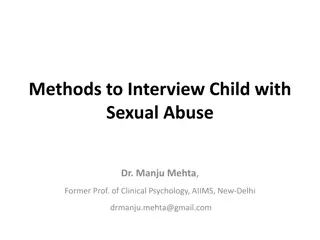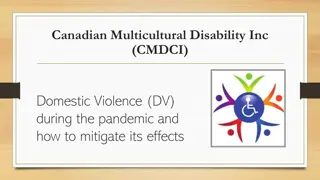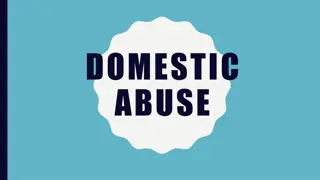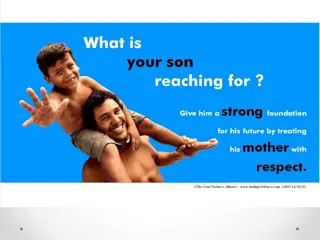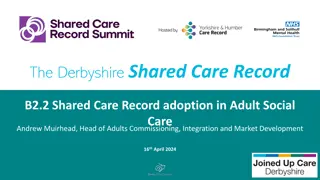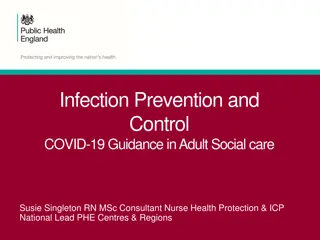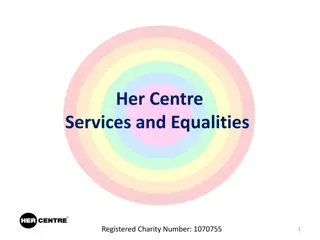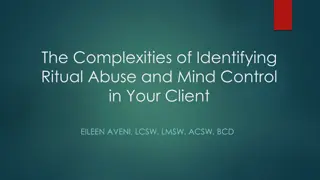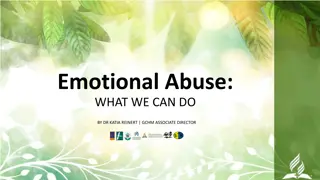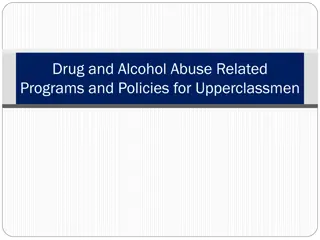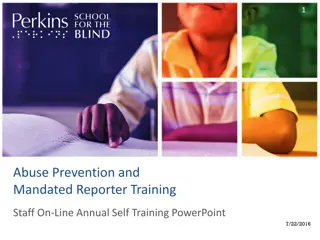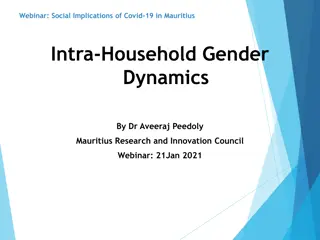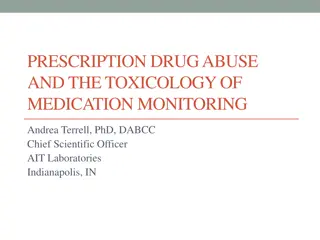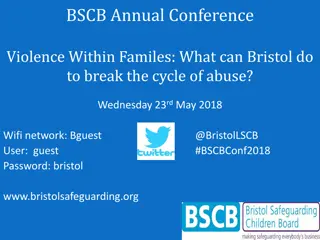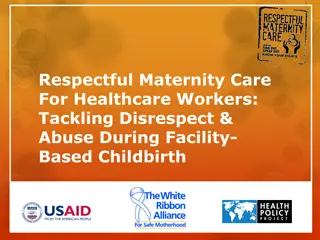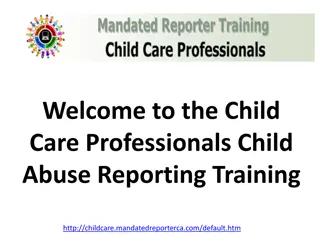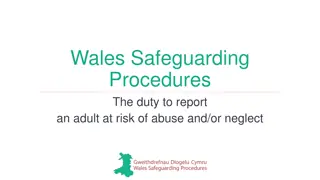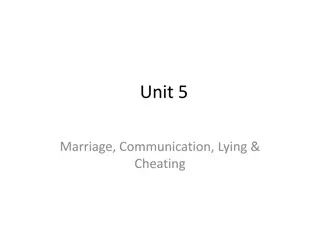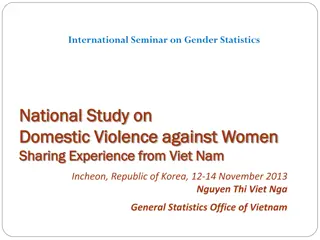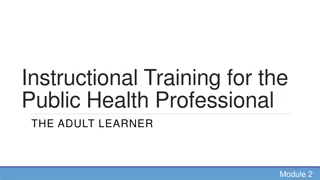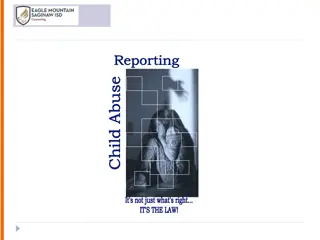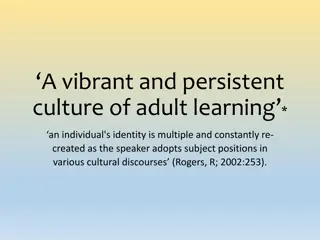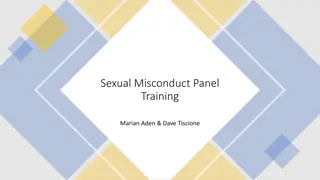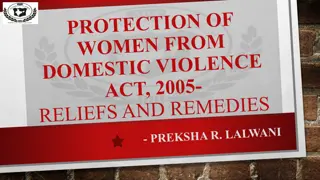Understanding Different Types of Domestic Abuse in Adult Social Care
The role of Adult Social Care (ASC) in countering domestic abuse is crucial, especially in identifying various forms of abuse beyond the typical scenarios portrayed in media. This includes recognizing abuse involving older adults, adult sons or grandsons as perpetrators, and different dynamics such as withholding food, medication misuse, and mocking victims. Collaboration with safeguarding teams, police, and care agencies is essential in addressing these complex situations effectively.
Download Presentation

Please find below an Image/Link to download the presentation.
The content on the website is provided AS IS for your information and personal use only. It may not be sold, licensed, or shared on other websites without obtaining consent from the author. Download presentation by click this link. If you encounter any issues during the download, it is possible that the publisher has removed the file from their server.
E N D
Presentation Transcript
Adult Social Care s Role in Countering Domestic Abuse April 2023
There is More Than One Type of Domestic Abuse! The media focus on domestic abuse within: A family with working age parents; school age children and perpetrator is male partner or ex- partner explicit violence that is escalating Adult Social Care (ASC) will occasionally encounter this, say, with people with a physical disability in a relationship BUT ASC is more likely to find Domestic Abuse (DA) in different situations
Older Woman and her Husband/Partner If it has been a long term relationship there may have been DA in the past and the woman has developed coping strategies: Staying with daughter Visiting her sister If the woman develops care and support needs The development of the care needs could be resented by partner The woman may no longer be able to employ her coping strategies she has relied on (e.g. daughter s home involves lots of stairs; sister dies)
The nature of the DA could be different: Withholding food and drink Misuse of medication (hiding it in food) Mocking the victim when she is incontinent The nature of physical aggression does not need to be intense a push! The Dynamic Risk is that the ability of the survivor to protect themselves is changing whilst their dependency is increasing.
Another Type of Domestic Abuse Adult son or grandson or (very occasionally) daughter is perpetrator Can be against both parents or just one In Herefordshire over 50 % of murders involve adult son / grandson murdering a parent Large number of parents experiencing DA from adult son s /grandson s. The perpetrator spends significant time at parents. The older person may be on cusp of having care and support needs The perpetrator often has a mix of mental health issues/addiction
Customers Where We Have Involvement Safeguarding Concern Opened This will result in a range of inter-agency discussion Safeguarding Team liaise with police in all concerns involving DA Will discuss with care agency (even if self funding) it s important they are consulted Victim will be consulted (when safe route identified) If high risk will be referred to Multi Agency Risk Assessment Conference (MARAC)
Safety Planning If short term involvement then safety planning may be key aspect before disengaging Consider telecare even if no risk of falls Can we get agreement from GP surgery that customer will always be invited in (no video consultations) to maximise face to face contact Can the customer build up a suitcase of clothes; toiletries and medsat a daughter s/son s?
Care and Support Needs Victims/ survivors with care and support needs Adult Social Care will assess Require free consent of the survivor Everyone is financially assessed and may be charged for services received following the assessment.



